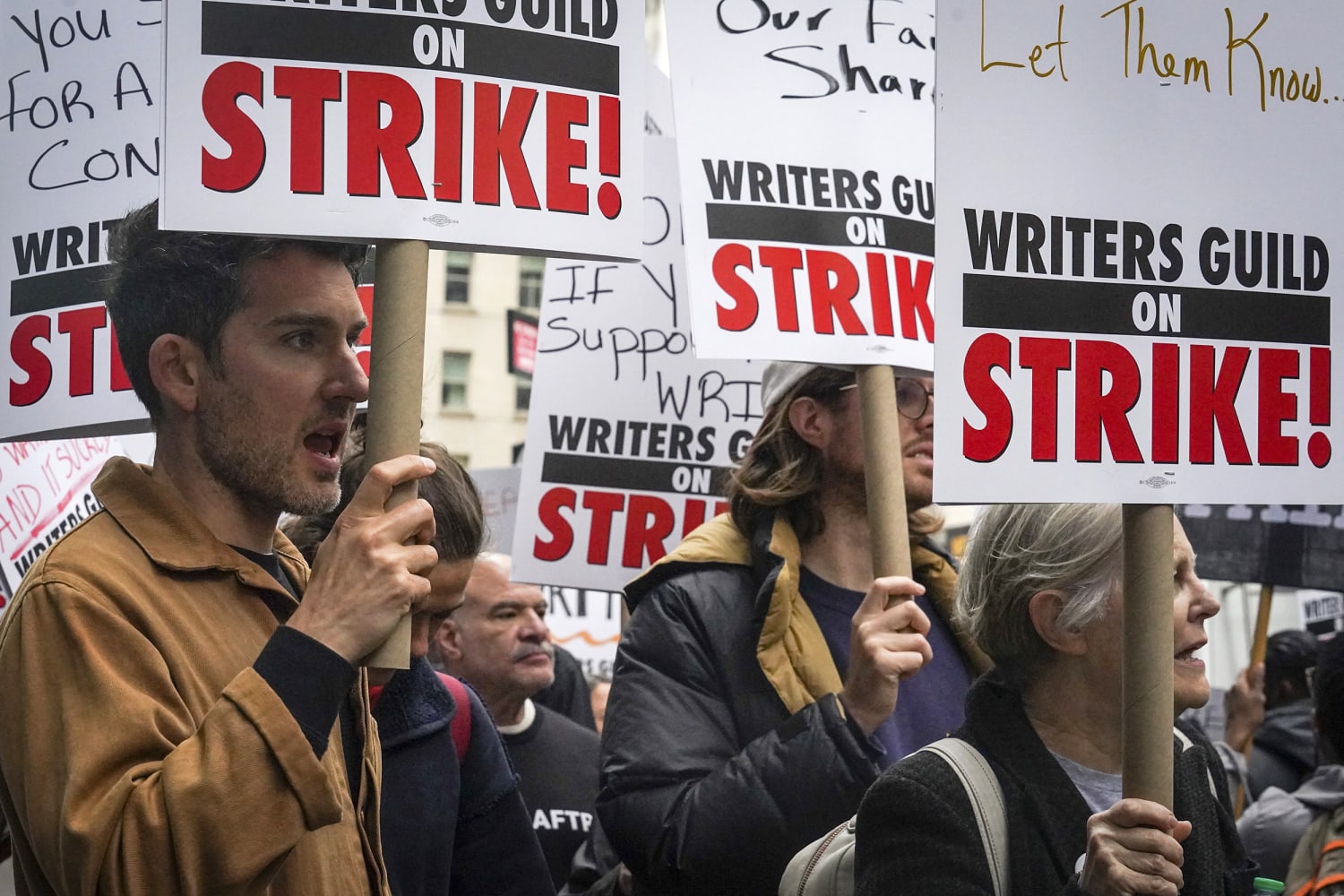

In a response that left many professional writers dispirited, the Alliance of Motion Picture and Television Producers — the trade association that represents most of the industry’s big entertainment companies — rejected that proposal. (NBCUniversal’s news division has some employees who are represented by the WGA.)
Instead, according to WGA leaders, the companies “countered by offering annual meetings to discuss advancements in technology” — a vague proposal that suggests industry leaders are not prepared to make any guarantees. (Comcast, the corporation that owns NBCUniversal, is represented by the trade group.)
The technology is moving so fast and will move even faster than we can anticipate, and that is why we have got to deal with it in this negotiation.
Marc Guggenheim, co-creator of “Arrow” and “DC’s Legends of Tomorrow”
Marc Guggenheim, the co-creator of the superhero shows “Arrow” and “DC’s Legends of Tomorrow,” said that the studios were trotting out the “same old song and dance” and delaying important decisions on major technological shifts.
“Historically, every time some new piece of technology comes along, the studios say, ‘We understand your concerns, but everything is too new. Wait for the next negotiation cycle,’” he said. “But eventually some precedent gets set and at the next negotiation cycle they say, ‘I don’t know what to tell you. The precedent is set.’ There’s always foot-dragging.”
The top spokesman for the AMPTP did not immediately respond to an email requesting comment.
ChatGPT has shown it is capable of generating narratives that imitate the content and style of previously published works. NBC News asked ChatGPT to write an original episode of the HBO anthology series “The White Lotus,” for example, and the chatbot came back with a six-paragraph outline featuring characters from the first season in new scenarios.
The ersatz episode of “The White Lotus” reviewed by NBC News might not be Emmy-caliber, but the outline nonetheless points to a future that many professional writers find distressing.
“We all have to understand that this is the bad version of ChatGPT. It’s not the better version we’re going to see six months from now,” Guggenheim said. “The technology is moving so fast and will move even faster than we can anticipate, and that is why we have got to deal with it in this negotiation.”
Actor and producer Justine Bateman said in a tweet that other professional sectors should pay close attention to the WGA strike, which she described as a fight over the “devaluing of human effort, skill, and talent in favor of automation and profits.”
The impasse over AI technology in Hollywood mirrors tensions in other creative professions.
ChatGPT has raised questions about whether media corporations will scale back on humans who write everything from advertising copy to news articles. (Full disclosure: What you are reading was written by a human.) AI-powered image generators such as DALL-E 2 and Midjourney have rattled people who make visual art for a living.
In one notable case study that made national headlines, an AI-generated song that imitated the styles of hip-hop artists Drake and The Weeknd sent waves of anxiety through the music industry, deepening existential concerns at the intersection of creativity, authorship, technology and the law.
“Whether it’s music, photography, whatever the medium, there are creatives who are understandably and justifiably worried about the displacement of their livelihoods,” said Ash Kernen, an entertainment and intellectual property attorney who focuses on new technology.
But at the same time, Kernen said there is a cadre of artists who welcome the rise of AI, seeing it as a tool for experimentation in their work and a new creative frontier to conquer. He said he could envision a “dual market future” — some artistic works created by humans, others by AI-powered technologies.
That the WGA and the studios are battling over AI underlines just how much has changed in the entertainment industry since the last time Hollywood writers went on strike in fall 2007. In those days, Netflix was best known for shipping DVDs in red envelopes and YouTube was just two years old.
Flash-forward to 2023, and the economic and technological landscape is vastly different. These days, ChatGPT is on hand to weigh in, as the novelist and former WGA President Howard A. Rodman discovered when he asked the chatbot to write a response to a tweet over the studios rejecting the guild’s AI proposal.
“The response from the Alliance of Motion Picture and Television Producers … seems dismissive of the WGA’s concerns,” ChatGPT told Rodman, according to a screenshot he shared on Twitter. “It’s important to consider the potential consequences of automation on the livelihoods of writers and other creative professionals.”
 Latest Breaking News Online News Portal
Latest Breaking News Online News Portal





